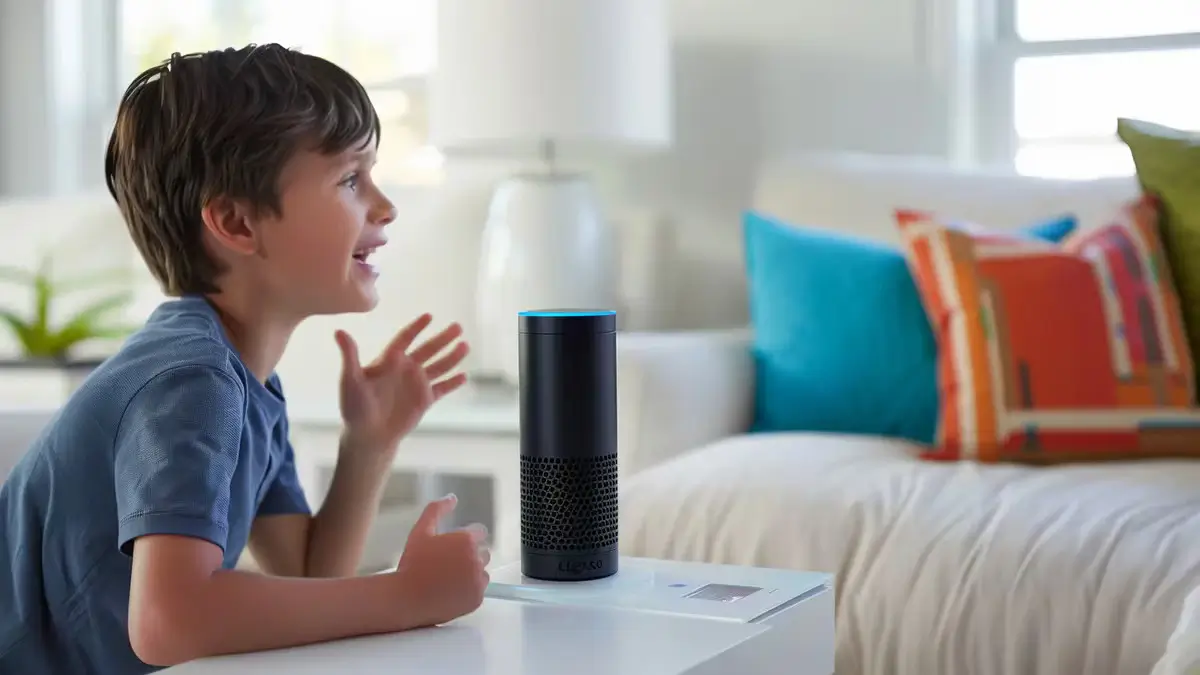Technology comes naturally to the Alpha generation, which is all children born since 2010. Being digital natives, their habits are different and a survey found that many prefer to use virtual assistants to make inquiries rather than going to their parents.
An omnichannel communications and conversation experience company, it was shown that members of this generation started interacting through their smart devices at around the age of 6. A gateway that reveals a lot of background data.
Children prefer Siri and Alexa over their parents
According to this study, 41% of minors born since 2010 had already communicated with virtual assistants like Siri or Google Assistant before they turned six. For these children, voice assistants are not just technological tools; they are trusted companions they go to for solutions to their doubts.
The most striking data from the survey is that 34% of children between 6 and 11 years old prefer to ask questions to voice assistants rather than their parents. This figure reflects not only the trust these children have in technology, but also a deep change in family dynamics.
While previous generations relied on their parents as the main source of information, today’s children have a resource at their fingertips that provides them with immediate and accurate answers to their curiosities without having to wait or justify them.
Generation Alpha’s familiarity with technology is no coincidence; it is the result of an environment saturated with digital devices from an early age. 61% of children between 6 and 11 years old have their own tablet, and 49% already have a cell phone. This access to technology from childhood has shaped not only their relationship with devices, but also their dependence on them for information and entertainment.
In addition, the study shows that 66% of children from this generation use tablets regularly from the age of five. A figure that also generates a warning about the necessary care and constant monitoring of parents.
The relationship between children and social networks
Generation Alpha has not only adopted technology for quick answers, but has also integrated social media into their daily lives from a young age. 46% of children between 6 and 11 years old have active accounts on social networks, despite the age restrictions imposed by many of these platforms.
One of the most popular platforms is WhatsApp, with 73% of 11-year-olds already familiar with this messaging application. Additionally, 33% of children between 6 and 11 years old use FaceTime to communicate, which shows a preference for real-time conversations via video. Even more traditional methods such as SMS still have a place in the lives of these young people, with 29% still using them regularly.
At what age is it appropriate to give a child the first cell phone?
Jarmila Tomkova, a psychologist specializing in childhood, suggests that the introduction of technological concepts should start from an early stage, when children see these devices primarily as toys and start showing curiosity about them, around 3 or 4 years old.
However, she shares that the right time for a child to get their first smartphone could be around 10 years old or even a little earlier, considering that the current trend is to lower this age limit.
She advises parents to wait until children are at least 11 years old, but emphasizes that regardless of the specific age, the important thing is to teach them to wait and delay gratification.

